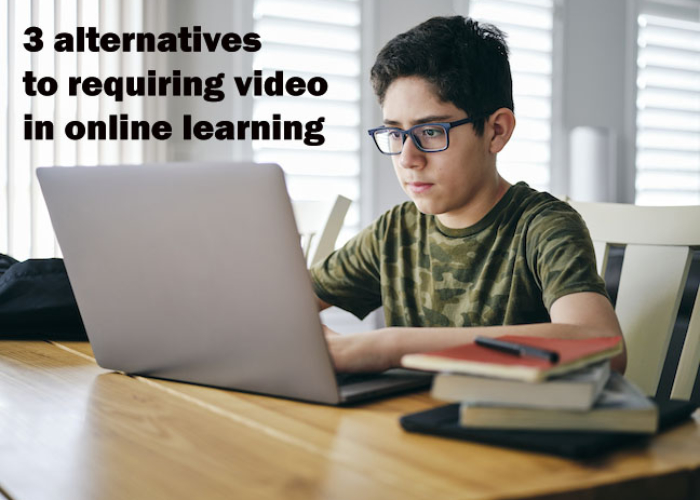
As we approach a full year after the COVID-19 pandemic disrupted our home, school, and professional lives, we are all straining to settle into a “new normal” amidst many uncertainties. Education leaders are seeking answers to when schools should reopen, how federal funds should be allocated with constrained state and local budgets, and how the new administration will impact public schools and the kids and teachers who depend upon them. While it sometimes feels impossible to predict day-to-day what will happen next, there is hope on the horizon. Below are a few opportunities for education leaders and policymakers to collaborate and improve the learning experience for all students and teachers, not just in 2021, but for years to come.
- National and state policymakers will increase focus on delivering ubiquitous broadband
In 2011, the United Nations issued a report claiming internet access was a basic human right, a finding it reiterated in 2016. Yet, today more than 15 million students in the U.S. lack adequate internet or devices needed for distance learning.
Since schools closed, creative problem-solvers have outfitted buses with wifi and driven their children to schools and libraries to access the WiFi from the parking lot. While these innovative solutions should be applauded, they should not be necessary. We’ve also seen some states, like Connecticut, allocate CARES Act funding to provide every student with broadband and devices and successfully close the digital divide for students. As a nation, we need to scale these innovative solutions so that broadband networks can be equitably deployed to all students. We need to work quickly so we do not widen the achievement gap exacerbated by this pandemic.
This year, we can expect policymakers at both the state and federal levels to work together to make broadband ubiquitous for all. Further, we must call on policymakers to not only ensure broadband is available but that it is provided at the appropriate level for families with enough devices for students.
At a local level, we need to introduce incentives for school districts to create capacity plans for broadband use in an emergency and invest in training so instructors can readily facilitate online or blended learning whenever needed. In short, access to broadband should be considered as essential as electricity, heating, and food. Increasingly, adequate broadband access is required for learning success; it is a learning utility.
- Schools will prioritize social-emotional learning
We must acknowledge that we are going through an extended period of collective trauma that could cause permanent damage — not just on a global scale but also in classrooms, homes, and psyches. Students need support from their teachers, teachers need support from administrators, and so on.
Social-emotional learning (SEL) will rise to the forefront as key to academic recovery. The Biden-Harris Administration has already identified SEL as a top K-12 priority. At DreamBox Learning®, we provide educators with a new way of encouraging students through an embedded messaging tool for sending positive notes to students and classrooms. We will need more thoughtful solutions that focus on social-emotional learning if we are to recover from our collective trauma. And, importantly, our teachers need additional support, just like our students do. A secure and supported learning guardian is an essential ingredient for student success.
- Educators will embrace formative learning and assessment models
The pandemic has illuminated the limitations of existing, reactive learning approaches. In the wake of canceled spring summative assessments last year, we have a unique opportunity to rethink learning and assessment models and seamlessly integrate dynamic and formative assessment with instruction to better support those students who are falling behind. We can do away with seat-based, time-based models of learning and move toward competency-based, student-centered models that promote student engagement and agency in the learning process while mitigating learning loss and closing the opportunity gap.
To do this, we must begin thinking about teachers as “Learning Engineers,” who have a new relationship with technology and data – both in the classroom and beyond it. These Learning Engineers can implement real-time and dynamic student learning insights into their instructional strategies to give new meaning to personalized, learner-responsive learning. This would also require leaders at technology companies, teacher preparation programs, and schools to ensure teachers have the training they need for the data-rich environments of classrooms today and in the future.
What’s next
As an industry, we stand at a crossroads: we can radically reimagine our approaches to education and access to it or we can fall back on “business as usual.” Given the profound impact that the past year has already had on education, the choice seems obvious. Let’s come together as education leaders, administrators, policymakers, and educators to ensure every student — regardless of race, zip code or gender — can receive a quality education.
Jessie Woolley-Wilson is President and CEO of DreamBox Learning®. Prior to joining DreamBox, she held executive positions at leading EdTech companies, including Blackboard, LeapFrog, and Kaplan. She has been a featured speaker at TEDx Rainier, SXSWedu, and the ASU GSV Summit, and Ernst & Young named her “Entrepreneur Of The Year®” in the Pacific Northwest region. She holds an MBA from Harvard Business School and a BA from the University of Virginia.
More from DA









